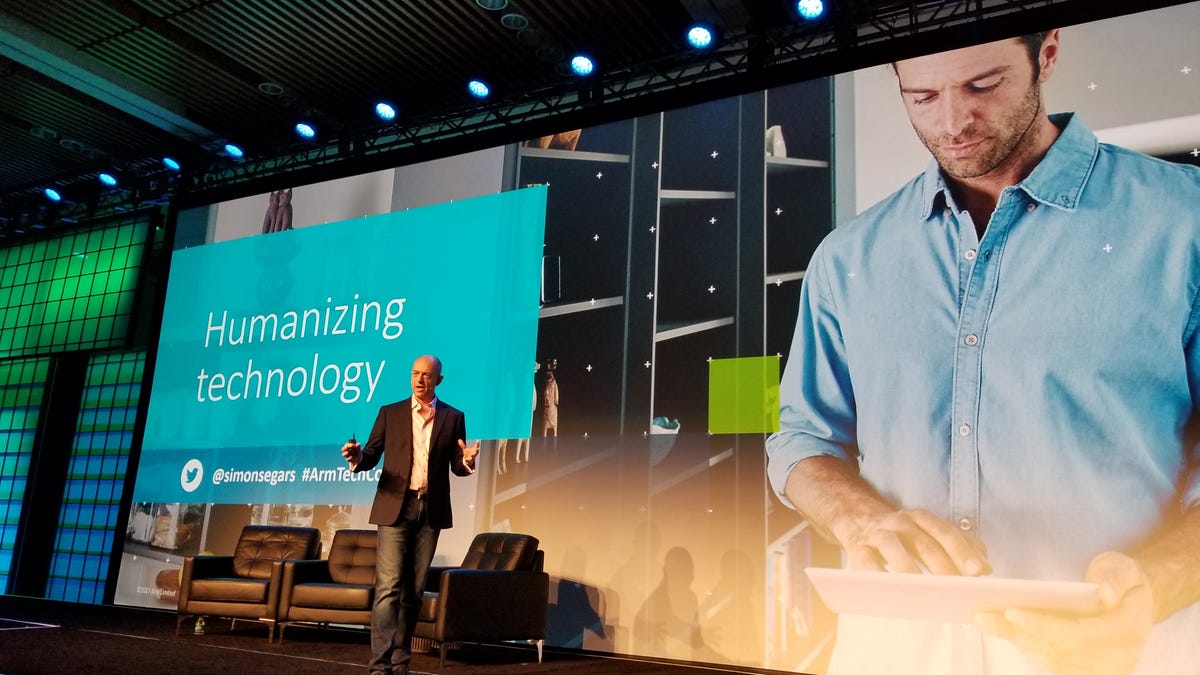Cybersecurity is a mess, mobile chip chief says
Simon Segars, CEO of processor tech company ARM Holdings, says security has to be fixed before we can benefit from AI and the internet of things.

ARM CEO Simon Segars says cybersecurity is a major issue for artificial intelligence and the internet of things.
Artificial intelligence and the internet of things will change the way we live, but they're still plagued by one big thing: a lack of security.
That, at least, is the perspective of Simon Segars, CEO of chip technology company ARM Holdings.
"Cybersecurity is a mess," Segars said Wednesday during a keynote at the ARM TechCon conference in Santa Clara, California. "The bad news is, unless we do something, it's going to get worse."
ARM is the UK company whose designs are the basis for most of the world's mobile processors, including those made by Apple and Samsung. Last year, Japanese telecommunications giant SoftBank bought ARM for nearly $32 billion (£24 billion). Segars noted Wednesday that more than 100 billion chips based on ARM's technology have shipped over the past 25 years. He expects another 100 billion to ship in the next four years as more and more products get smarter.
Along with designing chips that are faster and consume less energy, ARM also has turned its attention to security. It wants to make sure that devices are secured through their hardware, not just their software.
Cybersecurity is especially important as the world becomes more connected. Hackers are able to tap into insecure televisions, phones and even antivirus itself. Segars noted that even a fish tank in Las Vegas got hacked. While security experts fight to stay ahead of cybercriminals, it's much messier getting manufacturers and the average person to follow secure practices.
"You can't rely on passwords," Segars said. "You can't rely on people to update the firmware on the device."
Consumers assume the products they buy are secure, but many times, that's not the case, Segars said. It's up to device makers to take pains to make sure their devices can deal with hacks when they occur, he said.
"You've got to design things on the assumption a compromise will happen," Segars said. "Therefore how you react to it becomes really, really important."
CNET's Alfred Ng contributed to this report.
The Smartest Stuff: Innovators are thinking up new ways to make you, and the things around you, smarter.
iHate: CNET looks at how intolerance is taking over the internet.

